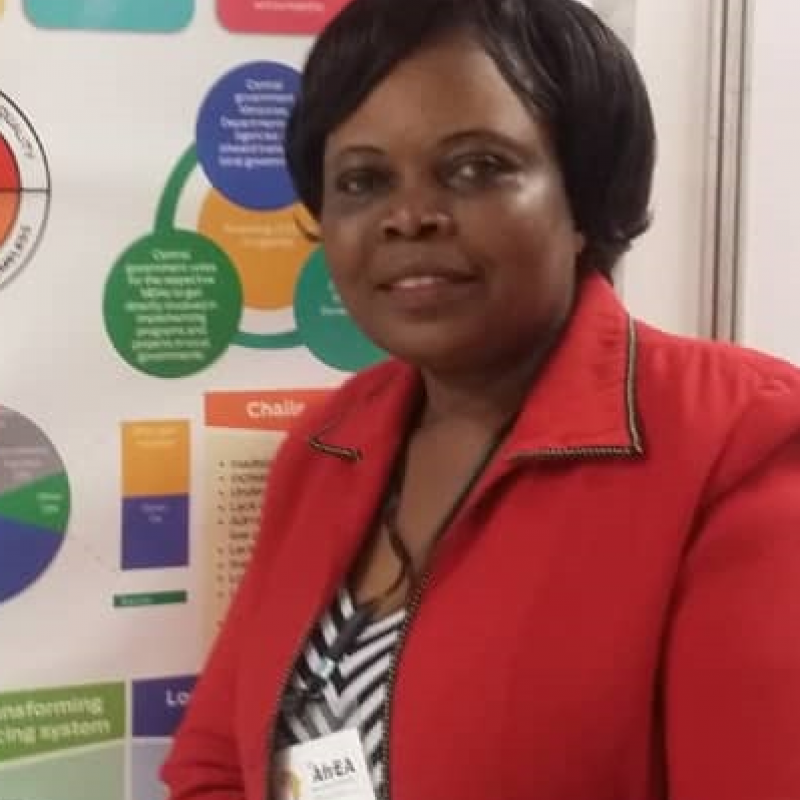Christine currently work with the Local Government Finance Commission in Uganda. She is in charge of Research and Data. Christine’s work mainly is to carry out research and evaluation of policies related to fiscal decentralization and to generate evidence aimed at assisting Members of the Commission to develop and offer evidence-based advice to the government on financing of service delivery at the local government level.
Prior to joining Local Government Finance Commission, Christine worked with the British Council in Uganda and with several NGOs in programming. She worked also with the Department of Health in London in London on a Quality Protects project which was a government wider policy aimed at improving the quality of life for children under the care of Social services. Christine has participated in varies professional trainings and workshop in participatory monitoring and evaluation.

Christine Kataike Abong
Principal Data Analyst Local Government Finance CommissionSilva Je suis tout à fait d'accord avec vous pour commenter les termes de référence, dans la plupart des cas, si les attentes ne sont pas bien articulées par les deux parties, l'acceptation des rapports d'évaluation peut poser des problèmes. Par conséquent, le rapport initial des commissaires devrait faire l'objet d'une discussion approfondie afin de dissiper tout malentendu concernant la mission.